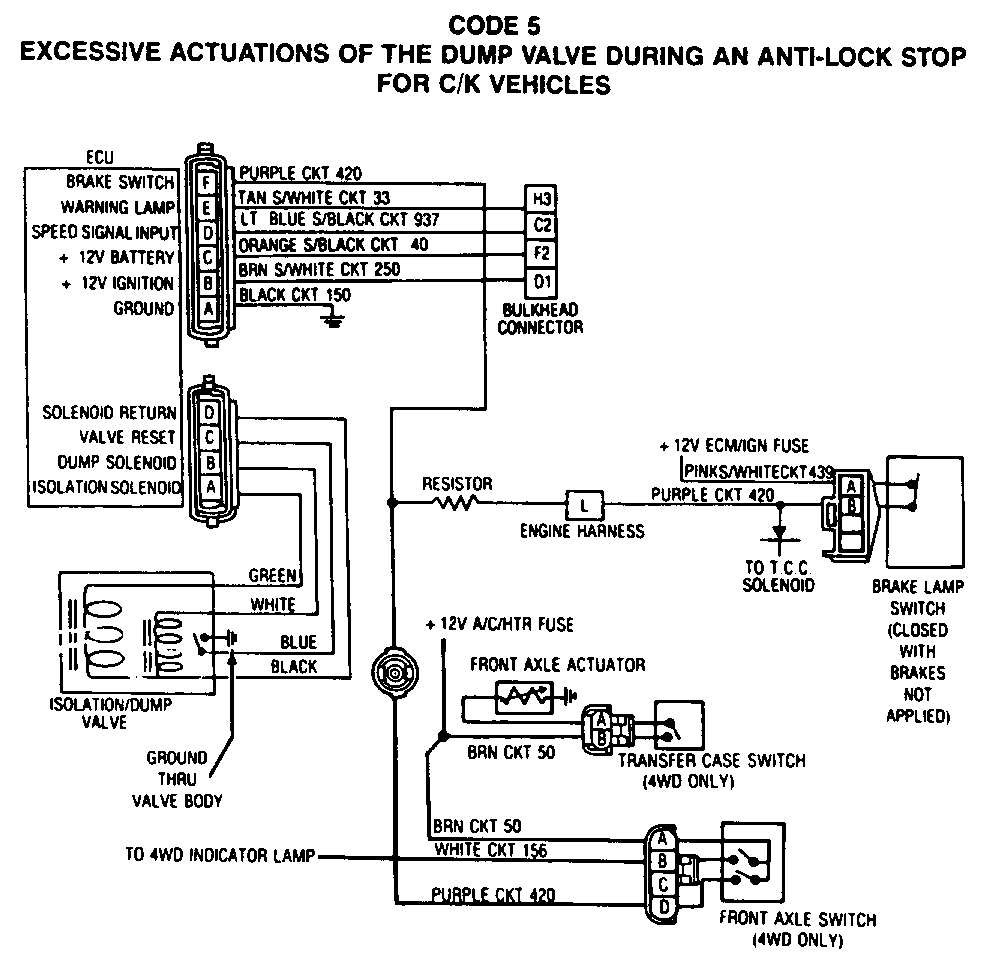REAR WHEEL ANTILOCK CIRCUIT 420 (DIAGNOSIS CLARIFICATION)

MODELS: 1988-1989 C/K AND 1989 S/T MODELS
Rear wheel antilock wiring diagrams for the 1988-1989 C/K and the 1989 S/T models show a resistor in Circuit 420. The purpose of this resistor is to prevent torque converter engagement during braking with the vehicle in 4 wheel drive.
IMPORTANT: Two wheel drive models use the same wiring harness with this resistor.
Diagnosing the resistor in Circuit 420 should be done at Pin "F" of the ECU connector (See Illustration). A digital voltmeter must be used. With the transfer case in two wheel drive, the engine off, and the ignition key in the "Run" position, voltage should be approximately 12 volts on Pin F.
IMPORTANT: A test light cannot be used to determine if this resistor is defective. The combined resistances of the test light built plus the 510 Ohm resistor drop the amperage below that required to hght the test light.
Actual testing of the resistor should be done with a digital Ohm Meter. The battery must be disconnected. The value of this resistor is 1/2 watt and 510 ohms. If the resistor is found to be defective, it is not available through GMSPO. Resistors of this type and value can be purchased from an electronics store.

General Motors bulletins are intended for use by professional technicians, not a "do-it-yourselfer". They are written to inform those technicians of conditions that may occur on some vehicles, or to provide information that could assist in the proper service of a vehicle. Properly trained technicians have the equipment, tools, safety instructions and know-how to do a job properly and safely. If a condition is described, do not assume that the bulletin applies to your vehicle, or that your vehicle will have that condition. See a General Motors dealer servicing your brand of General Motors vehicle for information on whether your vehicle may benefit from the information.
